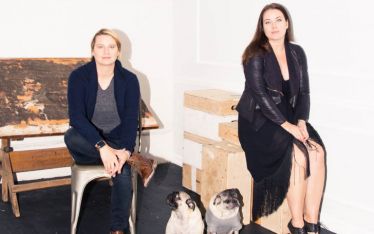Every creative has a beginning to their career. Those developmental years where you are still unsure if you are “allowed” to even call yourself a professional. Most artists, whether they are photographers, filmmakers, illustrators, musicians, etc., will spend a good amount of their start-up years working for free, or even at a loss — putting time, money, blood, sweat and tears into something they love, with the ambition of one day making it a career.
Few people I have met that are successful creatives have fast forwarded through these development years. We call it paying your dues. I am not advocating that artists charge someone every time they pick up a camera or a paint brush. There are times where pro-bono work is extremely valuable for developing a creative’s career. Personal projects and collaborations are often invaluable to learning and attracting clients to hire you as well. There are exceptions to every rule.
Even as a successful creative, each job is unique. But, I would urge creatives to start charging for their work right from the beginning, while still honing their skills with personal projects. At the end of the day, we all need money to survive, and experience and exposure don’t pay the bills.
When I say start charging for your work, it might be a really low amount of money for a lot of work. But, that is ok. I learned early on that something is better than nothing. This is valuable for a number of reasons — for starters, it gives you experience billing clients, even if it’s $50 bucks. Collecting on payment is a huge part of being an artists — it’s not enough to get the promise of money, you need to actually deposit it in your bank.
Charging for your work early on makes you understand what your service is worth, and it builds your negotiating skills. It forces you to understand what you agreed to, and what you didn’t, and how that affects the client’s bill at the end of the day. It makes you comfortable asking for money in exchange for your services, which is not always an easy task–it can be a scary moment pressing send on an email to a potential client asking them to pay you XX amount. You will also learn what it feels like for someone to say no.
Don’t expect to start one day and charge thousand dollar days rates the next. You have to take a good and honest look at your current strengths and short comings. Also, you shouldn’t be charging clients for the time it takes you to learn something. You are not going to have all the answers, it might take you 10 hours to edit something, that should take someone a couple hours — that extra time is on you. It’s your investment to yourself and the project to ensure you do a great job and you can improve for the next gig. Just make sure you account for this in the project timeline.
I would start with figuring out simply what your day rate is. How much do you want for 8 hours of work, and then for each job work up and down from there.
It’s ok to change your pricing. What you charge this month does not have to be what you charge next month. Don’t go crazy changing it all the time, but don’t feel like you need to figure out a number and stick with it forever. Move fast, make mistakes and adjust frequently.
Pricing is an art, not a science. There are no standard rates from what I have seen. There are ranges to every creative services, just like there are ranges for jobs, but there are a number of variables that go into how much a creative can and should charge, just like any job position. Pricing is not taught quickly. Ultimately, you just need to feel it out over time and that starts with practice and building your experience. So start early.


